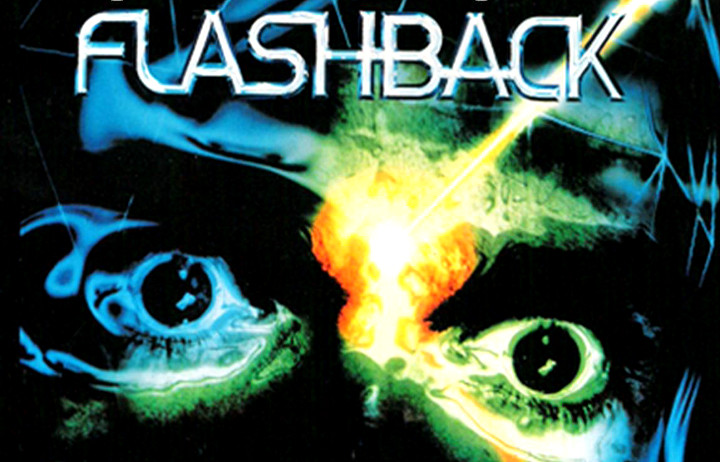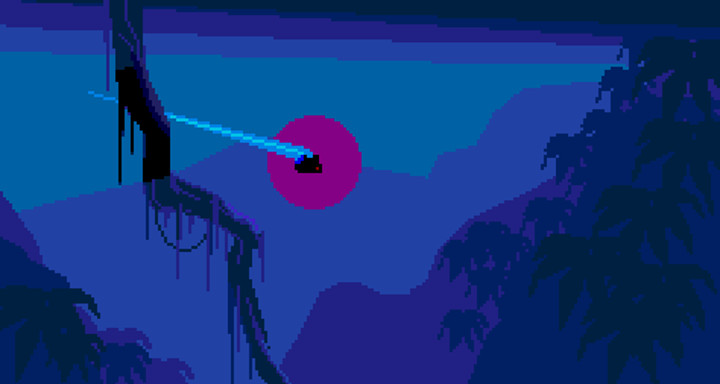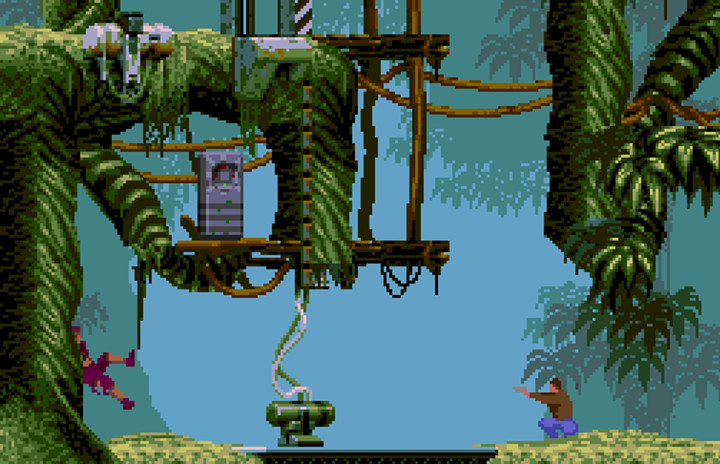My Feelings About Flashback: The Quest for Identity Will Always Be Mixed

I’ve been obsessed with Flashback: The Quest for Identity for decades. The game released in 1992 for Amiga, despite the fact that it was initially intended to be a Sega Mega Drive/Genesis release. It did end up on Genesis the following year, and that’s where I first discovered it, though it’s hard for me to pin down when exactly that would have been. I assume this would have been an overnight rental that I picked up at random at one point, though I can’t be sure.
How I discovered it isn’t important, and even if I could remember the details, it probably wouldn’t be an interesting story. What’s far more interesting — and what I can’t stop thinking about more than two decades later — is how Flashback made me feel. Picking it up for the first time felt like stumbling upon an impenetrable work of genius that I simply wasn’t smart enough to understand.
The game opens with a pixelated sequence of minimalistic animations that oh-so-briefly introduce you to this cyberpunk jungle locale before you’re tossed into a disorientingly complex labyrinth of puzzles. It sounds kind of cool, right? Wrong. It sounds absolutely incredible. Even as a kid, I knew this was a killer premise, but I also wasn’t able to fully wrap my head around it.

I’ve returned to Flashback several times through the years, and each time I feel like I understand it just a little bit more. Yet true mastery will always be out of reach. This is a game that feels intentionally antagonistic, forcibly pushing me away every time I draw near.
Yet I can’t stop. I will always come back. Flashback is Lucy holding a football, and I am Charlie Brown, perpetually filled with the hope that this will be the time that my foot connects with the ball and I watch it go soaring through the sky in a satisfying arc.
The thing is, Flashback is really, really hard. And not in a normal way. This is a game that gives you a really limited set of movements (all of which are slow and clunky) and forces you to memorize and practice move sequences to be able to progress through even its earliest bits. And then it throws maddeningly perplexing puzzles at you that feel impossible until all of a sudden they click and begin to make sense. Sometimes, you’ll be stuck on something for ages, only to realize later that you’d been misjudging a particular jump by a pixel or two.
For me, this simply isn’t fun. This isn’t difficult in the way that something like Battletoads is difficult, where you screw up and die, but you know exactly what you did wrong so you simply try again. This is difficult in the way where you’re never quite certain if you’re unable to perform the basic sets of actions properly, or if you’re approaching your problem from the completely wrong angle. It’s a difficulty level that’s accompanied by a nebulous sense of despair — it makes me feel like I’m flailing hopelessly in a nightmare world of dread.
Even in the Nintendo Switch remastered version, which includes a limited rewind feature that reduces the sting of failure, is too intimidating for me to complete.

Yet the game’s world feels so textured and lived-in, the lore feels so rich (despite the simplicity and nonchalance with which the game introduces it), the solutions to puzzles so brilliant, that it’s hard to ever forget completely.
Flashback: The Quest for Identity is a game that I will always appreciate, though only from afar. I will always enjoy reading articles about it or watching gameplay videos, but whenever I pick up a controller and try to push through its technological foliage, I find myself immediately repelled. It’s a hopeless endeavor that I somehow can’t help but admire, and a fascinating piece of video game history that shouldn’t be ignored. Yet I doubt I will ever actually enjoy playing it, and it’s even less likely that I will ever complete it.
But it always exists in the back of my mind, calling me back for another another journey into its persistent madness.
